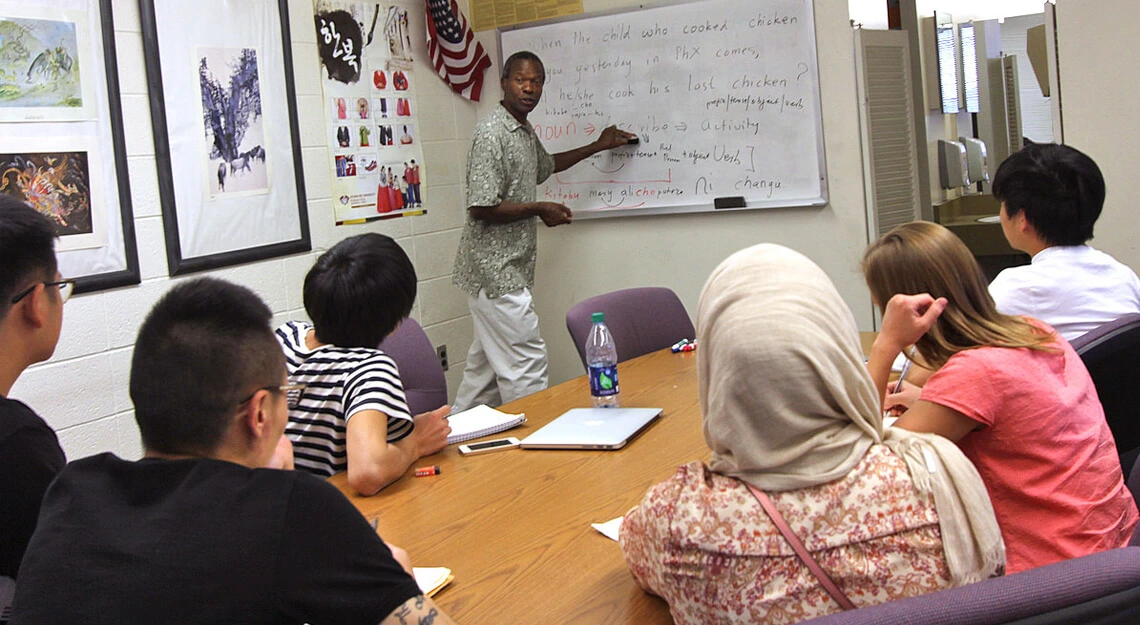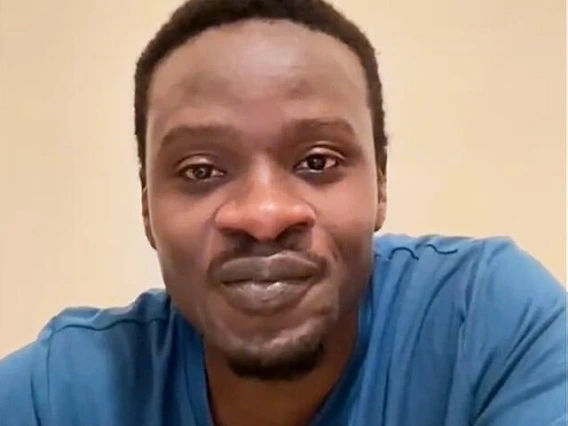Swahili is taught by the Critical Languages Program at the University of Arizona with credit and non-credit options available. Small class sizes, expert tutors, and immersive learning that connects language with lived experience.

Why Study Swahili?
- Widely used across Tanzania, Kenya, Uganda & DRC
- One of the official languages of the East African Community
- Rooted in centuries of trade, poetry, and community
- CLP Scholarships available for the study of Swahili
- Complete the UA Language Requirement!
What will you be able to do?
Explore the Swahili Student Learning Outcomes for 101 and 102 Courses
Learn faster with a student-friendly structure. Swahili has simple pronunciation, no verb conjugation by subject, and no gendered nouns—making it one of the most approachable African languages for English speakers.
Hear from our Students and Faculty

Olivia Katiku
Recipient of the Esther Chepchumba Machibya Memorial Scholarship
"One thing I really enjoy about the CLP classes is that it is more personalized than any other class I've had. The professor makes it so that I can actually go out of the classroom and have a confident and adequate conversation with a native speaker."

Msafiri Otonya, Swahili Tutor
"Language and culture are deeply interconnected. When you learn the language, it means that you expose yourself to learning the culture."
What Can You Do with Swahili?
Swahili is more than just a language—it’s a gateway to East African cultures, relationships, and opportunities. Whether you're interested in global careers, study abroad, or community-based projects, Swahili can expand your world and deepen your cultural understanding.
- Work in international development or diplomacy: Swahili is a critical language for the Peace Corps, USAID, and global NGOs working in East Africa.
- Travel with ease across East Africa: As a lingua franca in countries like Tanzania, Kenya, Uganda, and the DRC, Swahili helps you connect with communities, navigate cities, and explore local cultures.
- Pursue careers in tourism, trade, or humanitarian work: Swahili is vital for regional business, eco-tourism, healthcare outreach, and education programs.
- Engage with African literature, film, and music: Access East African poetry, Swahili hip hop, traditional proverbs, and oral storytelling traditions.
Ready to begin?
Our courses are welcoming and practical, with credit and non-credit options available. No prior experience needed.
For Credit
If you are a beginner, sign up for Swahili under CRL 101 course section number 391 in UAccess.
Not sure where to start?
If you have studied the language before or have spoken it at home, you should reach out to the tutor of your language or the Program Coordinator to schedule a free informal placement assessment.
If you do not see a level that you need offered in UAccess, reach out to critlang@arizona.edu.
Want to take a non-credit course?
You may have interest in learning this language but do not need university credit. We offer non-credit, community online courses for adults, as well as individualized tutoring. (No UA matriculation needed).
Origins of the Swahili Language
Swahili, also known as Kiswahili, Kiswahili is an African language that currently serves multiple functions across regional, continental, and international levels. With its origins in East African coastal societies, Kiswahili is now an official and national language in most East African countries, including Tanzania, Kenya, and Uganda. It is a lingua franca in East, Central, and a few parts of Southern Africa, making it critical in multi-ethnic societies in these geographical spaces. Given its influence in promoting diplomatic ties in the continent, Kiswahili serves as an official and/or working language in different continental organizations, including the East African Community (EAC) with its headquarters in Arusha, Tanzania; the African Union (AU), whose headquarters are located in Addis Ababa, Ethiopia; and the Southern African Development Community (SADC) with its headquarters in Gaborone, Botswana.
Still, from a global perspective, Kiswahili has been adopted in various educational systems due to its influence on the diaspora, tourism, diplomacy, and cultural exchanges. As such, Kiswahili courses are offered in several institutions across the globe, mainly as a second, foreign, or additional language, in Asia, Europe, and the US, which has the highest number of such institutions globally. From a cultural perspective, the presence of Kiswahili literary works, including literature, music (such as Taarab and Bongo Fleva), and its rapidly growing film industry from East African countries continues to position this language in the global scene. Based on the above and its critical contribution, mainly for fostering unity and societal cohesion, in 2021, UNESCO granted Kiswahili international status. Thus, every July 7th, Kiswahili International Day is celebrated globally.

